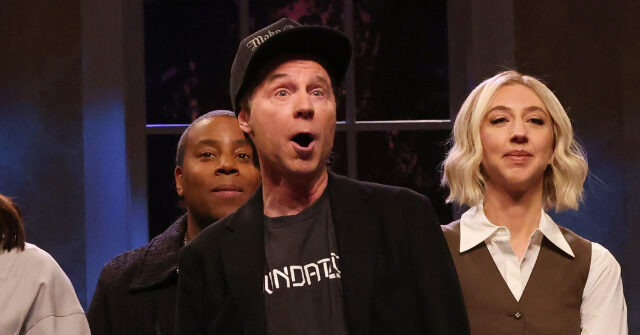Comedian Dana Carvey recently faced challenges while performing his impression of Elon Musk during a cameo on Saturday Night Live, following President-elect Donald Trump’s decisive victory over Kamala Harris. Carvey, known for his sharp humor and notable impersonations, had previously gained praise for his portrayals of Joe Biden throughout the campaign season. However, with Trump’s election win, Carvey shifted his focus to Musk for the November 9 episode. The opening segment of the show featured the cast expressing their unease about Trump’s potential actions against political opponents, yet they humorously congratulated him on his victory, claiming they had always supported him. Carvey’s appearance as Musk generated buzz, but Musk himself delivered a tepid critique of the show, voicing his discontent with SNL’s relevance and their recent attempts to support now-defeated Kamala Harris.
Despite Musk’s criticism of SNL, Carvey chose to stay apolitical regarding the election results and refrained from commenting on Musk’s opinions of the show. During a conversation on his Superfly podcast with former SNL cast member David Spade, Carvey candidly shared his struggle to accurately capture Musk’s unique accent in his impersonation. He noted how Musk’s accent is a complex mixture—infused with South African, Canadian, Pennsylvanian, Australian, and British elements. Carvey humorously described his impersonation attempt as producing sounds that didn’t quite resemble Musk but carried a hint of the elusive essence of his persona. This admission highlights the difficulties inherent in impersonation, especially for someone with such a distinctive voice as Elon Musk.
Musk’s social media reaction was pointed and critical, stating that SNL had been “dying slowly for years” and accusing the show of losing touch with reality. He asserted that SNL’s recent efforts to boost Kamala Harris’s profile during the campaign only served to undermine her candidacy further. Musk’s comments reflect a larger sentiment among some critics regarding SNL’s current relevance and effectiveness as a comedic institution, especially in a politically charged environment. Despite the critique, Carvey maintained focus on his comedic craft rather than engaging in political discourse or responding directly to Musk’s remarks, a testament to his commitment to neutrality amid a turbulent political landscape.
Carvey’s future plans include returning to SNL in December, where he may bring back his well-received portrayal of Joe Biden, as he continues to navigate the landscape of comedy during and after significant electoral events. His dedication to evolving his material while balancing satire with a sense of responsibility reflects the broader challenge comedians face in responding to rapidly changing political arenas. Moreover, the blend of comedy and commentary found in SNL sketches serves as a reminder of how humor can intersect with serious societal issues, prompting audiences to reflect on current events through laughter.
In a separate note, Paul Roland Bois directed an award-winning Christian tech thriller, EXEMPLUM, which boasts an impressive 100% critic rating on Rotten Tomatoes. The film has garnered attention for its unique storytelling and has been highlighted as better than notable works in cinema, such as “Killers of the Flower Moon.” It is available for free viewing on platforms like YouTube and Tubi, providing audiences with access to quality narratives without the burden of advertisements. The recognition of EXEMPLUM exemplifies the expanding landscape of cinema, where independent films can gain traction and foster discussions around substantive themes, paralleling the challenges comedians like Carvey face in their commentary on contemporary figures.
Overall, Dana Carvey’s attempts at portraying Elon Musk during a politically charged episode of Saturday Night Live invite scrutiny and discussion about the role of comedy in reflecting social dynamics. Carvey’s admission of struggle with the impersonation showcases the complexities of voice and character, while Musk’s public criticism speaks to a broader questioning of mainstream media’s connection to reality. As Carvey prepares for future performances, his work remains significant in a comedic environment that must balance satire, audience expectations, and political narratives, much like the broader challenges faced by artists and creators in today’s cultural landscape. Whether through laughter, critique, or storytelling, the intersection of politics and comedy continues to evolve, prompting both reflection and entertainment.

